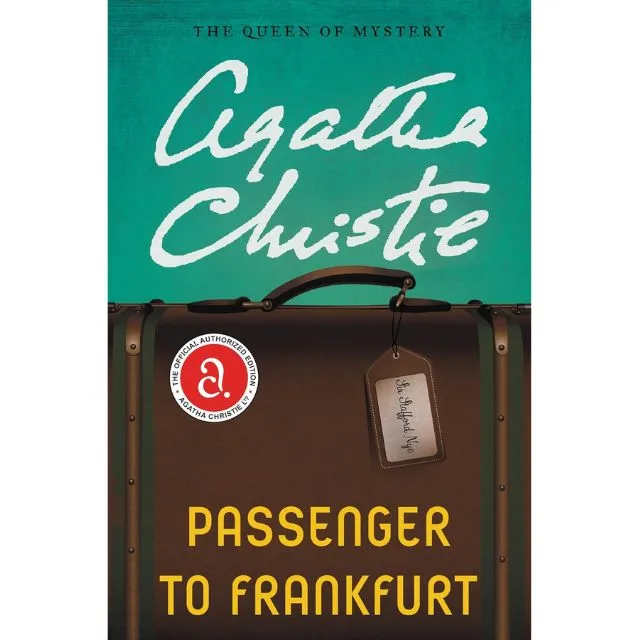Agatha Christie’s “Passenger to Frankfurt” stands as a unique departure from her classic whodunits. The novel embarks on a journey through international espionage and political upheaval. Published in 1970, the novel introduces us to Sir Stafford Nye, an unorthodox British diplomat. He then becomes entangled in a global conspiracy far beyond the quiet corridors of the Foreign Office.
If you’d like to read “Passenger to Frankfurt” firsthand, you can purchase the book here.
The adventure begins at an airport in Frankfurt, where Nye encounters a mysterious woman in need for his help. In a moment of intrigue, he offers her his passport to help her escape from an unspecified danger. This impulsive act draws him into a world of shadowy figures, secret organisations, and a plot to reshape the world order.
As Nye delves deeper, he discovers that the woman is part of a network fighting against a sinister force seeking to exploit the youth of the world to revolt. The mastermind behind this movement is a charismatic yet elusive figure, whose ambitions threaten to ignite a new world war. Christie crafts a narrative that weaves together themes of identity, the power of youth, and the spectre of mass manipulation, reflecting the era in which she wrote the novel.
Personal Review
However, the plot itself is hard to follow, with many loopholes. Despite the potential for danger, there is a lack of suspense, with the only perceived threat being youth protests. Furthermore, Sir Stafford Nye, as the main character, is not given enough explanation from the supposedly ‘good guys’. His motivations and actions often feel disjointed and unclear. I have to admit that I have mixed emotion with the Hitler’s ‘golden boy’ plot. Although it is understandable that Nazism is considered as much more dangerous than drug.
“Passenger to Frankfurt” is not just a tale of espionage but also a commentary on the anxieties of the late 20th century. It touches on the fear of global annihilation and the disillusionment with traditional power structures. While it’s not Agatha Christie’s usual fare, the novel showcases her adeptness at exploring the complexities of societal change. This spy thriller remains a testament to her versatility as a storyteller, offering a gripping narrative that resonates with the universal quest for peace and stability in a changing world.
In an era where the lines between fiction and reality blur more with each passing day, “Passenger to Frankfurt” emerged as a mirror reflecting the world. Christie, with unparalleled foresight, gave us a narrative that feels eerily prophetic. She portrayed a world on the edge of upheaval, where the shadows of war loom large, stirred by the invisible hands.
Concluding Score
“Passenger to Frankfurt” resonates with the present-day society, marked by fears of cyber warfare, the spread of misinformation, and the crumbling of traditional power hierarchies. The novel’s exploration of young people’s disillusionment, and their susceptibility, echoes the rise of populist movements. Through this lens, this novel becoming somewhat a commentary to today’s power struggles and geopolitical tensions.
Score 2.5 out of 5 stars
Click here for more book reviews and recommendations!
Author: Francesca Ropa
Miserable is only a concept. Writes fictions and human interest stories. Days spent in rugged Middle Earth.The Haptic Room is supported by our readers. Our site may contain links to affiliate websites, and if you make a purchase through these links, we receive a commission to support our site.

